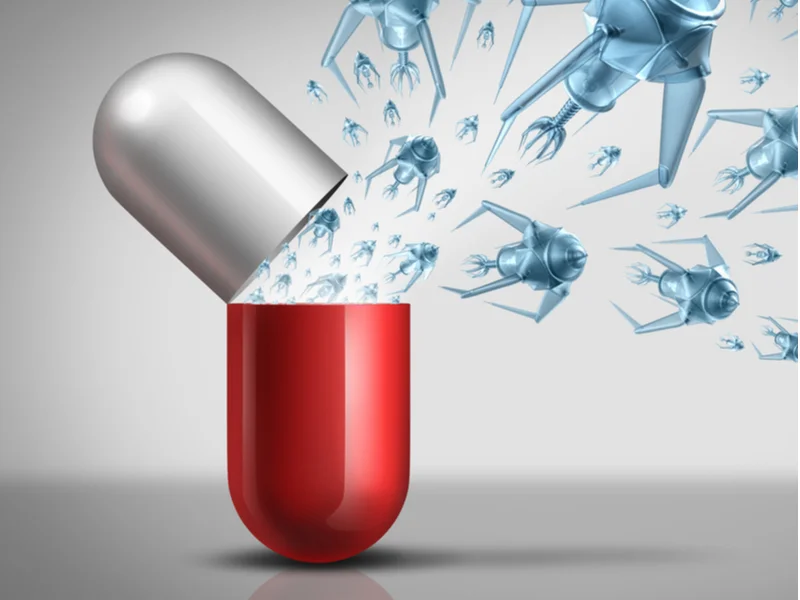The world of medicine is in the midst of a profound transformation, and at the heart of this revolution is a field that deals with the exceptionally tiny – nanotechnology. This captivating blend of science and engineering has ushered in an era where manipulating matter at the nanoscale, with structures smaller than 100 nanometers, is now commonplace. Nanotechnology’s role in medicine, aptly named nanomedicine, has set the stage for remarkable changes in healthcare. In this article, we’ll delve into the myriad ways nanotechnology is influencing the field of medicine, from targeted drug delivery to improved diagnostics and regenerative therapies.
Nanotechnology’s Foundations
Before we explore nanotechnology’s applications in medicine, it’s essential to grasp the fundamental principles of this interdisciplinary science. Nanotechnology operates at a scale where individual molecules and atoms are manipulated to create materials, devices, and systems with unique properties. The ability to engineer matter at such a minute level opens doors to a multitude of applications, including electronics, materials science, and, significantly, medicine.
Precise Drug Delivery:
One of the most compelling aspects of nanotechnology’s influence on medicine is its impact on drug delivery. Traditional drug delivery methods often result in drugs circulating throughout the body, which can lead to side effects and diminished efficacy. Nanoparticles, engineered with precision, offer an innovative solution to this age-old problem.
These tiny carriers can transport drugs directly to their intended destination, reducing side effects and enhancing the treatment’s effectiveness. For instance, in cancer therapy, nanoparticles can be designed to target and destroy cancer cells while sparing healthy tissues, thereby minimizing the harm caused to the patient.
Enhanced Imaging and Diagnostics:
Nanotechnology has also revolutionized medical imaging and diagnostics. It has enabled the development of contrast agents that significantly enhance the quality of images. These agents help in detecting and diagnosing diseases at an earlier stage and with greater accuracy.
For example, the use of quantum dots, nanoscale semiconductor particles, has improved the visualization of tissues and structures. This is particularly critical in early disease detection, as in the case of cancer, where early diagnosis can be a matter of life and death.
Regenerative Medicine:
Regenerative medicine, which focuses on repairing or replacing damaged tissues and organs, stands to benefit immensely from nanotechnology. Nanoscale materials, such as scaffolds and nanoparticles, can mimic the extracellular matrix, stimulating the body’s natural regenerative processes. This offers hope for patients with conditions like spinal cord injuries, osteoarthritis, and other degenerative diseases.
Personalized Medicine:
Nanotechnology plays a pivotal role in enabling personalized medicine. By tailoring treatments to an individual’s genetic makeup, nanomedicine offers the potential for significantly improved treatment outcomes. For instance, nanoparticles can be used to deliver gene therapies designed to address specific genetic mutations, ensuring more precise and effective treatment.
Addressing Antibiotic Resistance:
The rise of antibiotic-resistant bacteria is a growing concern in healthcare. Nanotechnology presents a potential solution by creating nanomaterials capable of targeting and destroying antibiotic-resistant pathogens. This approach holds promise in combating infections that are no longer responsive to traditional antibiotics.
Ethical Considerations:
While the potential of nanotechnology in medicine is vast, it’s essential to consider the associated ethical implications. These include issues related to patient privacy, informed consent, and equitable access to advanced treatments. As nanomedicine continues to advance, addressing these ethical concerns is paramount to ensure that the benefits of these innovations are accessible to all.
In the context of healthcare and medical regulations, a “DEA number lookup by NPI” refers to the process of cross-referencing the National Provider Identifier (NPI) of a healthcare provider with their corresponding Drug Enforcement Administration (DEA) number. This lookup is essential for tracking and verifying the prescribing practices of healthcare professionals, particularly in relation to controlled substances. It is a critical tool in maintaining the integrity of healthcare and ensuring that the prescription of controlled substances follows established regulations and guidelines. This integration of technology, like NPI and DEA number lookup, exemplifies how innovation, even at the nano level, permeates every facet of the healthcare industry.
Conclusion
In conclusion, nanotechnology’s impact on medicine is undeniable. It has the potential to revolutionize the way we diagnose and treat diseases, make drug delivery more effective, and even address antibiotic resistance. As the field of nanomedicine continues to advance, it is crucial to overcome challenges and address ethical concerns to ensure that these innovations benefit all of humanity.

